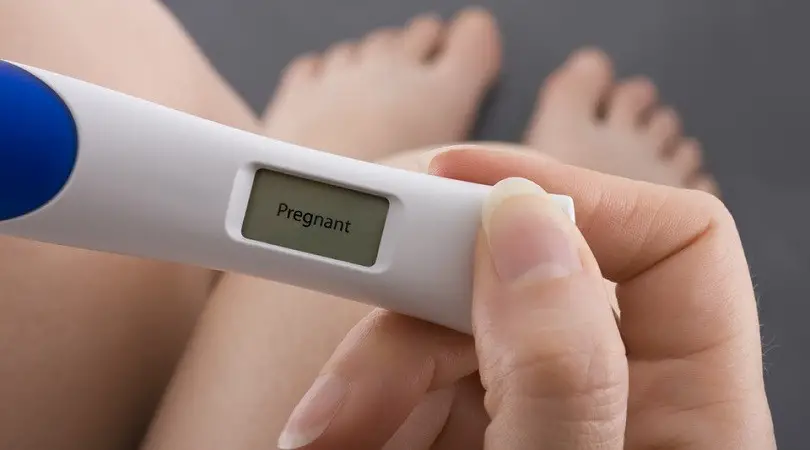Last Updated on January 6, 2025
Yes, it is possible for basal body temperature (bbt) to drop and still indicate pregnancy. When a woman conceives, her bbt typically rises and stays elevated, but occasional lower temperatures can occur due to implantation bleeding or hormone fluctuations.

Credit: www.healthline.com
Understanding Basal Body Temperature (Bbt)
Can Bbt Drop And Still Be Pregnant?
What Is Basal Body Temperature?
Basal body temperature (bbt) is the lowest temperature your body reaches during periods of rest. It is usually measured in the morning upon waking up, before any physical activity or movement. Bbt is a key indicator of hormonal changes in a woman’s body, making it a valuable tool for tracking ovulation and fertility.
How Is Basal Body Temperature Measured?
To measure basal body temperature accurately, you need a specialized basal thermometer. Here’s how you do it:
- Take your temperature every morning at the same time, before getting out of bed.
- Make sure to use the same thermometer consistently for accurate readings.
- Keep a structured chart or use a fertility tracking app to record your bbt readings daily.
- Note any relevant factors that could affect your temperature, such as illness, lack of sleep, alcohol consumption, or travel.
The Relationship Between Bbt And The Menstrual Cycle
Understanding the connection between bbt and the menstrual cycle can provide valuable insights into your fertility. Here are the key points:
- During the first half of your menstrual cycle, known as the follicular phase, your bbt tends to be lower due to the presence of estrogen.
- Just before ovulation, estrogen levels peak and cause a slight drop in bbt, followed by a significant rise after ovulation.
- The rise in temperature, usually around 0.5 to 1 degree fahrenheit, indicates that ovulation has occurred.
- If conception and pregnancy take place, bbt remains elevated in the second half of the cycle, known as the luteal phase.
- However, if fertilization does not occur, bbt will eventually drop again, signaling the onset of menstruation.
Understanding your bbt patterns can help you identify the most fertile days in your cycle and increase your chances of getting pregnant. Keep in mind that bbt alone cannot confirm pregnancy, but it can be a useful tool when combined with other fertility tracking methods.
Tracking your bbt requires patience and consistency, but it can provide valuable insights into your reproductive health. By paying attention to your body’s natural temperature changes, you can enhance your understanding of your menstrual cycle and optimize your chances of conceiving.
Happy tracking!
The Role Of Bbt In Confirming Pregnancy
Bbt, or basal body temperature, can serve as an indicator of pregnancy. By carefully tracking your bbt, you may be able to detect early signs of pregnancy before even taking a test. But how can you determine if your bbt drop means you are still pregnant?
Let’s explore the various factors that come into play.
How Bbt Can Indicate Pregnancy
- Bbt refers to the lowest body temperature measured at rest, typically upon waking up in the morning.
- During early pregnancy, certain hormonal changes can cause a rise in bbt, signaling that ovulation and implantation have occurred.
- By monitoring your bbt consistently over time, you may notice a sustained increase in temperature, suggesting a possible pregnancy.
Typical Bbt Patterns During Pregnancy
- In most cases, bbt remains elevated above the pre-ovulatory baseline throughout early pregnancy.
- If you experience a drop in bbt after the temperature rise, it could indicate a potential miscarriage or a failed implantation.
- However, it’s crucial to remember that bbt patterns can vary between individuals, and not all women will experience the same temperature fluctuations.
Factors That Can Affect Bbt During Pregnancy
- Factors including stress, illness, lack of sleep, and certain medications can influence bbt readings.
- Additionally, external environmental conditions, such as a warmer room temperature, can affect the accuracy of bbt measurements.
- It’s essential to interpret bbt changes in conjunction with other signs and symptoms of pregnancy, such as missed periods, fatigue, breast tenderness, and nausea.
While a drop in bbt can potentially cause concern during pregnancy, it’s essential to consider various factors and seek medical advice for proper interpretation. Bbt can provide valuable insights, but it should not be the sole determining factor in confirming or ruling out a pregnancy.
Remember to consult with a healthcare professional for accurate guidance and support throughout your pregnancy journey.
Frequently Asked Questions Of Can Bbt Drop And Still Be Pregnant?
Can Your Bbt Drop And Still Be Pregnant?
Yes, a slight drop in basal body temperature (bbt) could be a normal occurrence during pregnancy.
Is A Drop In Bbt A Sign Of Miscarriage?
A drop in bbt alone is not necessarily indicative of a miscarriage. Consult your healthcare provider for accurate evaluation.
Does A Drop In Bbt Mean You Are Not Ovulating?
A drop in bbt does not necessarily imply that you are not ovulating. Bbt fluctuations can vary from person to person.
Can Stress Cause A Drop In Bbt?
Stress can potentially affect bbt, causing fluctuations, but it’s not the only factor. Multiple factors can impact bbt.
When Should I Be Concerned About A Drop In Bbt?
If you experience a significant and sustained drop in bbt, it’s advisable to consult your healthcare provider for further evaluation.
Conclusion
Finally, it is important to remember that while tracking your basal body temperature (bbt) can provide valuable insights into your fertility, it is not foolproof. A drop in bbt does not necessarily mean you are not pregnant. It is possible for bbt to remain elevated even if you are not pregnant, and it can also drop slightly and still indicate a successful pregnancy.
It is crucial to consider bbt alongside other fertility signs and symptoms, such as cervical mucus and ovulation tests, for a more accurate understanding of your fertility status. If you are trying to conceive, consulting with a healthcare professional or fertility specialist can provide further guidance and support.
Ultimately, every woman’s body is different, and the best course of action is to pay attention to your body’s unique patterns and seek professional advice if you have any concerns. Trust your instincts and listen to your body throughout your fertility journey.











